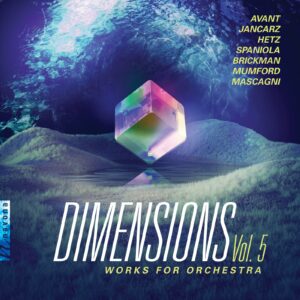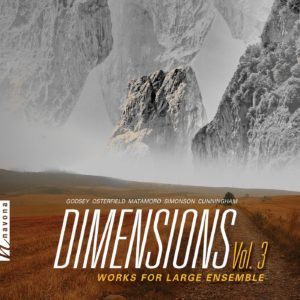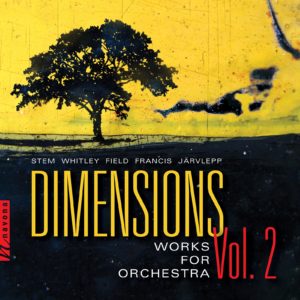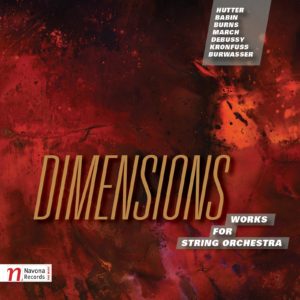Dimensions Vol. 4
Liova Bueno composer
Keith Lay composer
Octavian Nemescu composer
Ashlee T Busch composer
James Lentini composer
Christopher Jessup composer
Brno Contemporary Orchestra
Pavel Šnajdr conductor
DIMENSIONS VOL. 4 gathers together a diverse collection of works for large ensemble by six lauded contemporary composers. These powerful yet intimate creations expand the boundaries of traditional chamber music while preserving the unique timbre of each individual instrument. The collection includes works like Shallow Streams by Ashlee T Busch, in which quick-moving wind, string, and percussion lines dance over the calm “riverbed” of the piano. A Distant Place by James Lentini employs eight instruments including harp and guitar to portray the driving spirit that compels us to chase our dreams. Meanwhile, Piccola Serenata from composer Liova Bueno is a 21st-century take on a style of music composed and performed in Europe during the 17th and 18th centuries, intended as light entertainment at social gatherings. These are just a few examples of the sheer breadth of DIMENSIONS VOL. 4.
Listen
Stream/Buy
Choose your platform

Experience in Immersive Audio
This album is available in spatial audio on compatible devices.
Stream now on Apple Music, Tidal, and Amazon Music.
Track Listing & Credits
| # | Title | Composer | Performer | |
|---|---|---|---|---|
| 01 | Piccola Serenata | Liova Bueno | Brno Contemporary Orchestra | Pavel Šnajdr, conductor | 7:49 |
| 02 | Children on the Playground: Joyful Play | Keith Lay | Milan Paľa, violin; Brno Contemporary Orchestra | Pavel Šnajdr, conductor | 5:44 |
| 03 | Children on the Playground: Yearning | Keith Lay | Milan Paľa, violin; Brno Contemporary Orchestra | Pavel Šnajdr, conductor | 6:43 |
| 04 | Children on the Playground: Follow the Leader | Keith Lay | Milan Paľa, violin; Brno Contemporary Orchestra | Pavel Šnajdr, conductor | 5:13 |
| 05 | Cristiascensiocello | Octavian Nemescu | Brno Contemporary Orchestra | Pavel Šnajdr, conductor | 8:11 |
| 06 | Shallow Streams | Ashlee T Busch | Brno Contemporary Orchestra | Pavel Šnajdr, conductor | 7:57 |
| 07 | A Distant Place: I. Secret Nights | James Lentini | Brno Contemporary Orchestra | Pavel Šnajdr, conductor | 5:39 |
| 08 | A Distant Place: II. Journey to a Dream | James Lentini | Brno Contemporary Orchestra | Pavel Šnajdr, conductor | 6:30 |
| 09 | Svítání | Christopher Jessup | Brno Contemporary Orchestra | Pavel Šnajdr, conductor | 6:00 |
Recorded April 27-38, May 31, June 21, August 16-17, 2022 at Janáček Theatre Recording Studio in Brno, Czech Republic
Session Producer Jan Košulič
Session Engineer Aleš Dvořák
Assistant Session Engineer Lukáš Nabělek (1, 5, 6, 7)
Editing, Mixing
Lucas Paquette (1, 6)
Jan Košulič (2-4, 9)
Melanie Montgomery (5, 7-8)
Additional Editing
Ethan Fields (1)
Melanie Montgomery (1, 2-4)
Lucas Paquette (9)
Mastering Brad Michel
Immersive Audio Engineer Brad Michel
Executive Producer Bob Lord
A&R Director Brandon MacNeil
A&R Danielle Sullivan, Chris Robinson
VP of Production Jan Košulič
Production Director Levi Brown
Audio Director Lucas Paquette
Production Assistant Martina Watzková
VP, Design & Marketing Brett Picknell
Art Director Ryan Harrison
Design Edward A. Fleming
Publicity Patrick Niland, Brett Iannucci
Artist Information
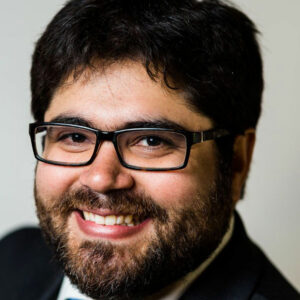
Liova Bueno
Liova Bueno's music is performed in concerts and music festivals internationally, from Europe, the United States, and across Canada to countries in Central and South America. He has received commissions from and has collaborated with various ensembles, including Cuarteto de Bellas Artes (Mexico), Vox Humana Chamber Choir (Victoria, B.C.), the Victoria Choral Society (Victoria, B.C.), the London Symphony Orchestra (U.K.), the Janáček Philharmonic Orchestra (Czech Republic), BRNO Contemporary Orchestra (Czech Republic), the Illinois Modern Ensemble (Illinois), the Orquesta Sinfónica Nacional Juvenil and members of the Orquesta Sinfonica Nacional (Dominican Republic), and members of the Victoria Symphony.

Keith Lay
The New York Times' head critic Anthony Tommasini raved about Keith Lay as "a composer to watch for," and Gramophone magazine has described his music as "unapologetically emotional.” Lay explains, "My life's goal is to share my reverent wonder about sound and the connections to our nature made available through listening. Every new piece is a joyful opportunity to construct a fresh musical method, technique, or invention."

Octavian Nemescu
Octavian Nemescu (1940-2020) was born in Pascani (Romania). He studied composition with Mihail Jora at the Conservatory of Music in Bucharest, obtained the Ph.D. in Musicology in 1978, at the Conservatory in Cluj, under the guidance of Sigismund Toduta. The title of his doctoral thesis was: “The Semantic Capacities Of Music,” published as a book, at Editura Muzicala Publishing House, Bucharest, 1983. He was an assistant and then lecturer at Brasov University (School of Music) between 1970-1978.
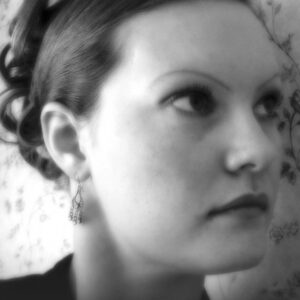
Ashlee T. Busch
Ashlee T. Busch is a composer, performer, remixer, arranger, and educator based in Grand Rapids MI. Busch most enjoys collaborating with other artists in poetry, dance, installation art, video, and more. Such collaborations have included residencies with East Coast and Midwest universities, as an artist with Grammy-award-winning PARMA Recordings, publishing with mixed ensemble music education publisher Leading Tones LLC, publishing with digital choral music company Zintzo LLC, and collaborations with ensembles premiering her works across the United States.
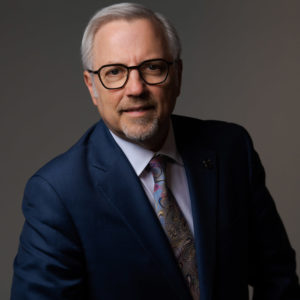
James Lentini
Award-winning composer and classical guitarist James Lentini is a recipient of the Andrés Segovia International Composition Prize, the Atwater-Kent Composition Award (first prize), the McHugh Composition Prize, a grant from "Meet the Composer," a Hanson Institute of American Music composer-performer grant, and multiple awards from the American Society of Composers, Authors, and Publishers (ASCAP).

Christopher Jessup
Christopher Jessup is a multi award-winning composer and pianist whose music has been hailed as “lovely” [The New York Times], “imaginative” [Fanfare], and “ethereal” [Textura]. Highly regarded as both a composer and performer, Jessup is one of the foremost musicians of his generation.

Brno Contemporary Orchestra
The Brno Contemporary Orchestra (BCO) was founded in 2011 with the aim of performing the world’s contemporary music and selected 20th-century works in Czechia and Czech music throughout the world. The ensemble includes top-level professional musicians employed in the leading Czech orchestras. It draws on a large pool of permanent collaborators who perform in various lineups according to the needs of each project.
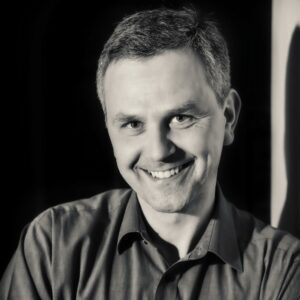
Pavel Šnajdr
Pavel Šnajdr is a Czech conductor and composer. He is a graduate of the Janáček Academy of Music and Performing Arts (JAMU), Brno in composition (which he studied with Alois Piňos) and conducting (with Emil Skoták). Beyond working with symphony orchestras, he has been engaged by music theatres including the J.K. Tyl Theatre in Pilsen, the Prague State Opera and the Moravian Theatre in Olomouc, and currently conducts opera at the National Theatre in Brno.
